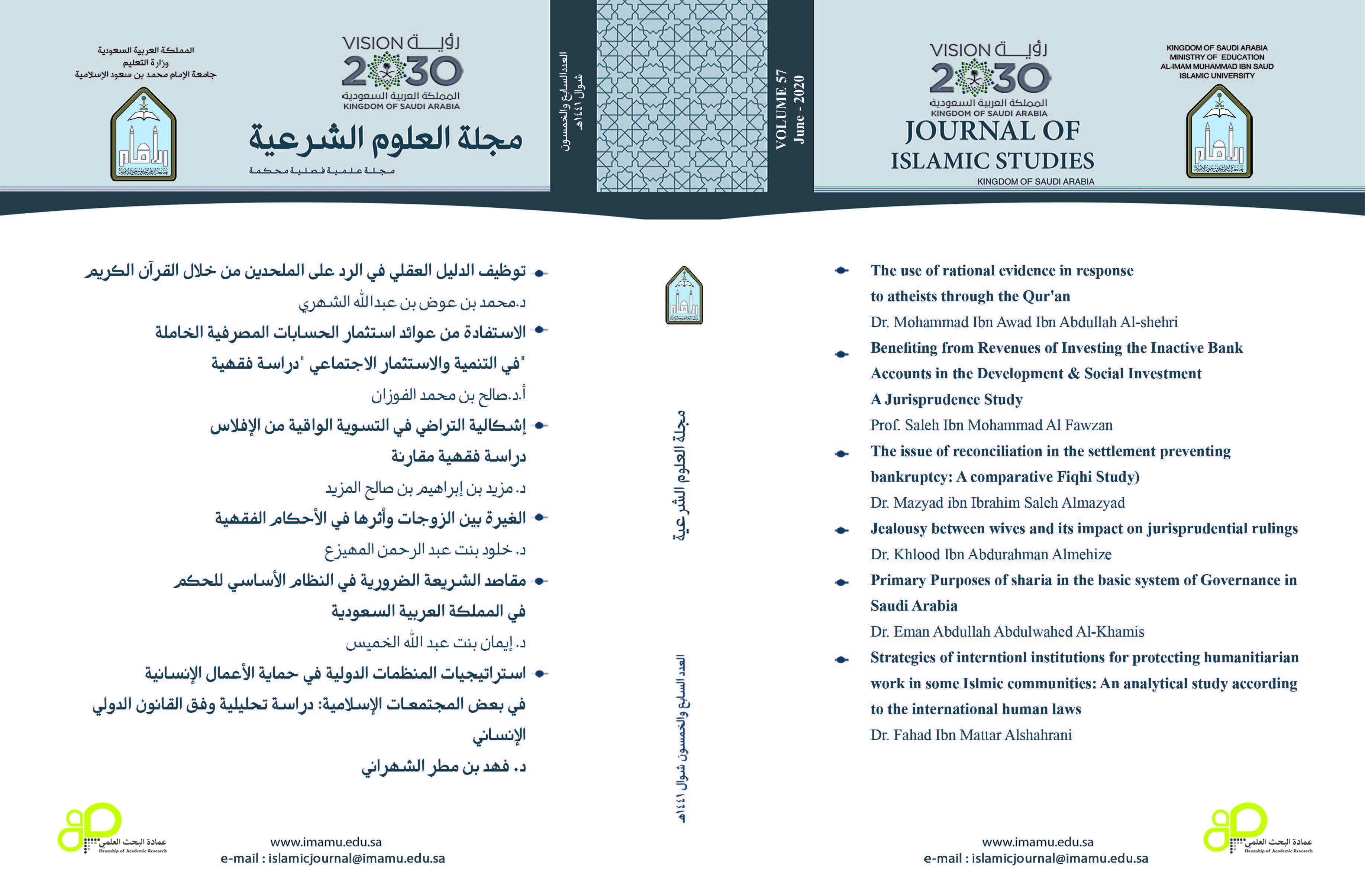Strategies of international institutions for protecting humanitarian work in some Islamic communities: An analytical study according to the international human laws
Keywords:
strategies, international organizations, protection of humanitarian work, Islamic communities, international humanitarian lawAbstract
The objectives of the study include to clarify the concept of the strategies followed to protect humanitarian work, and to identify the reality of contemporary armed conflicts in some Muslim communities, and to highlight the responsibility of international humanitarian law towards contemporary armed conflicts, and to analyze the strategies of international organizations during armed conflicts in the protection of humanitarian actions of some Muslim communities.
Methodology: Descriptive and analytical approach.
Study results: The Islamic world is currently, in general, experiencing many international and non-international armed conflicts, and needs multiple humanitarian protection to alleviate their suffering. Islamic world had to respond to their living needs and main components, and that the sources of international humanitarian law proceed from the four Geneva Conventions and Protocols, as well as International organizations (the United Nations, the International Committee of the Red Cross (ICRC)) are concerned with the protection of humanitarian action.
Study Recommendations: Introducing a curriculum for teaching the principles of international humanitarian law in the universities and institutions concerned, reformulating the Geneva Convention and its two protocols into one convention called the modern Geneva Convention, and directing scientific research centers in universities to write on international humanitarian law (both Islamic and manmade).




